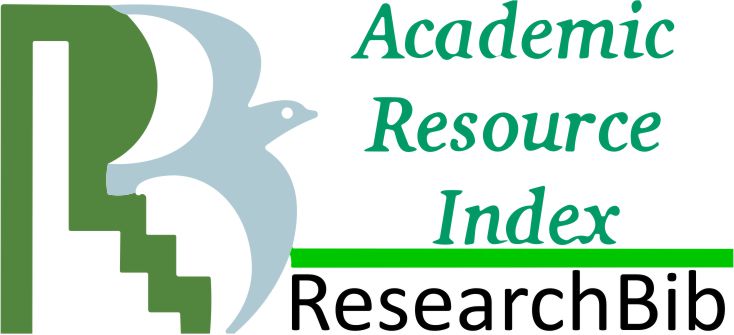DOI
10.21002/jaki.2020.09
Abstract
This paper examines the predictive value of other comprehensive income and its disclosure in ASEAN. Unlike value relevance, the predictive value of other comprehensive income has not been extensively addressed in the literature. We conduct the first study examining the predictive value of other comprehensive income and its disclosure to prove that not only fair value as relevant information, but also other comprehensive income reflecting the changes of fair value. We use hand-collected data taken from the financial reports. This study employs a panel regression model to test the ability of other comprehensive income and its disclosure to predict firms’ future performance. The results confirm that as relevant information, other comprehensive income and its disclosure have predictive value. In addition, other comprehensive income which interacted with disclosure of other comprehensive income resulted predictive value only for one year ahead. Furthermore, other comprehensive income components which belongs to fair value level 1 and 2 have predictive value because it uses market-based input. Meanwhile, other comprehensive components which belong to fair value level 3 only have predictive value for one year ahead because it uses unobservable input that can lead to higher subjectivity.
Bahasa Abstract
Penelitian ini bertujuan untuk menguji nilai prediktif laba komprehensif lain dan pengungkapan laba komprehensif lain di ASEAN. Tidak seperti relevansi nilai, nilai prediktif laba komprehensif lain tidak banyak dibahas di dalam literatur. Kami melakukan penelitian pertama untuk menguji nilai prediktif laba komprehensif lain dan pengungkapan laba komprehensif lain untuk membuktikan bahwa tidak hanya nilai wajar yang menjadi informasi relevan, tetapi juga laba komprehensif lain yang menggambarkan perubahan nilai wajar. Kami menggunakan data hand-collected yang diambil dari laporan keuangan. Penelitian ini menggunakan model regresi data panel untuk menguji kemampuan laba komprehensif lain dan pengungkapan laba komprehensif lain untuk memprediksi kinerja perusahaan di masa depan. Hasil penelitian menegaskan bahwa sebagai informasi yang relevan, laba komprehensif lain dan pengungkapan laba komprehensif lain memiliki nilai prediktif. Kemudian, laba komprehensif lain yang diinteraksikan dengan pengungkapan laba komprehensif lain menghasilkan nilai prediktif hanya untuk satu tahun mendatang. Selanjutnya, komponen laba komprehensif lain yang masuk nilai wajar tingkat 1 dan 2 memiliki nilai prediktif karena menggunakan input berbasis pasar. Sementara itu, komponen laba komprehensif lain yang masuk nilai wajar tingkat 3 hanya memiliki nilai prediktif untuk satu tahun ke depan karena menggunakan unobservable input yang menyebabkan subjektivitas yang lebih tinggi.
References
Aboody, D., M., E. Barth, and R. Kasznik. 1999. Revaluations Of Fixed Assets And Future Firm Performance: Evidence From The UK. Journal of Accounting and Economics, 26 149178.
Badia, M., M. Duro, F. Penalva, and S. Ryan. 2017. Conditionally Conser-vative Fair Value Measurements. Journal of Accounting and Economics, 63 (1), 75–98.
Bandyopadhyay, S. P., C. Chen, and M. Wolfe. 2017. The Predictive Ability Of Investment Property Fair Value Adjustments Under IFRS And The Role Of Accounting Conservatism. Advances in Accounting, 38, 1–14.
Barth, M. E. 1994. Fair Value Accounting: Evidence From Investment Securities And The Market Valuation Of Banks. The Accounting Review, 69 (1), 1–25.
Barth, M. E., W. H. Beaver, and W. R. Landsman. 2001. The Relevance Of The Value Relevance Literature For Accounting Standard Setting: Another View. Journal of Accounting and Economics, 31 (1-3), 77-104
Barth, M. E., Landsman, W. R., Lang, M., and Williams, C. 2012. Are IFRS-Based And US GAAP-Based Accounting Amounts Comparable?. Journal of Accounting and Economics, 54 (1), 68–93.
Cheung, Y-L, P. Jiang, W. Tan. 2010. A Transparency Disclosure Index Measuring Disclosures: Chinese Listed Companies. J. Account. Public Policy, 29, 259–280 .
Devalle, A., F. Rizzato, and D. Busso. 2016. Disclosure Indexes And Compliance With Mandatory Disclosure —The Case Of Intangible Assets In The Italian Market. Advances In Accounting, Incor-porating Advances In International Accounting, 35, 8–25.
Dhaliwal, D., K. R.Subramanyam, and R. Trezevant. 1999. Is Comprehensive Income Superior To Net Income As A Measure Of Firm Performance? Journal of Accounting and Economics 26, 43–67.
Doukakis, L. C. 2010. The Persistence Of Earnings And Earnings Compo-nents After The Adoption Of IFRS. Managerial Finance, 36 (1), 969-980.
Dye, R. and S. Sridhar. 2008. A Positive Theory Of Flexibility In Accounting Standards. Journal of Accounting and Economics. 46. 312-333.
Eccher, E.A., K. Ramesh and, S. R. Thiagarajan. 1996. Fair Value Disclosures by Bank Holding Companies. J. Accounting and Econ. 22 (1-3), 79-117.
Ehalaiye, D., M. Tippett, M., and T. v. Zijl. 2017. The Predictive Value Of Bank Fair Values. Pacific-Basin Finance Journal, 41, 111–127.
Elbannan, M. A., and M. A. Elbannan. 2015. Information Content Of SFAS 157 Fair Value Reporting. Journal of International Accoun-ting, Auditing and Taxation, 25, 31–45.
Evans, M., L. Hodder, and P. Hopkins. 2010. Do fair values predict future financial performance?. Working Papers of Kelley School of Business Indiana University.
Fargher, N. and J. Z. Zhang. 2014. Changes In The Measurement Of Fair Value: Implications For Accounting Earnings. Accounting Forum, 38 (3), 184–199.
Fitriany, S. Utama., A. Farahmita, and V. Anggraita. 2017. Economic Conse-quences of IFRS Adoptions Around The ASEAN Countries. International Journal of Economics and Mana-gement, 11 (2), 529 – 551.
Georgiou, O., and L. Jack. 2011. In Pursuit of Legitimacy: A History Behind Fair Value Accounting. The British Accounting Review, 43 (1), 311-323.
Gordon, E. A. et al. 2015. The IASB’s Discussion Paper On The Conceptual Framework For Finan-cial Reporting: A Commentary and Researches Review. Journal of International Financial Mana-gement and Accounting, 26 (1), 72–110.
Herrmann, D., S. M. Saudagaran, and W.B. Thomas. 2006. The Quality Of Fair Value Measures For Property, Plant, And Equipment. Accounting Forum, 30, 43–59.
Hodder, L. D., P. E. Hopkins, and J. M. Wahlen. 2006. Risk-Relevance Of Fair-Value Income Measures For Commercial Banks. The Accounting Review, 81 (2), 337–375.
Houqe, M. N., R. M. Monem, M. Tareq, and T. v. Zijl. 2016. Secrecy And The Impact Of Mandatory IFRS Adoption On Earnings Quality In Europe. Pacific-Basin Finance Journal, 40, 476–490.
International Accounting Standards Board. 2007. International Accounting Standard (IAS) 1: Presentation of Financial Statements.
International Accounting Standards Board. 2011. International Accounting Standard (IAS) 1: Presentation of Financial Statements.
International Accounting Standards Board. 2013. International Accounting Standard (IAS) 16: Property, Plant, and Equipment.
International Accounting Standards Board. 2011. International Accounting Standard (IAS) 19: Employee Benefit.
International Accounting Standards Board. 2008. International Accounting Standard (IAS) 21: The Effects of Changes in Foreign Exchange Rate.
International Accounting Standards Boards. 2014. International Financial Reporting Standard (IFRS) 9: Financial Instrument.
International Accounting Standards Board. 2013. International Financial Reporting Standard (IFRS) 13: Fair Value Measurement.
International Accounting Standards Board. 2011. International Financial Reporting Standard (IFRS) 7: Financial Instrument: Disclosure.
International Accounting Standards Board. 2018. Conceptual Framework for Financial Reporting 2018.
Ismail, W. A. W., K. A. Kamarudin, T. v Zijl, and K. Dunstan. 2013. Earnings Quality And The Adoption of IFRS‐Based Accounting Standards: Evidence From An Emerging Market. Asian Review of Accounting, 21 (1), 53-73,
Jones, D. A., and K. J. Smith. 2011. Comparing The Value Relevance, Predictive Value, And Persistence Of Other Comprehensive Income And Special Items. The Accounting Review, 86 (6) 2047–2073.
Kanagaretnam, K., R. Mathieu, R., and M. Shehata. 2009. Usefulness Of Comprehensive Income Reporting In Canada. Journal of Accounting and Public Policy, 28 (4), 349–365.
Khan, S., and M. E. Bradbury. 2014. Volatility And Risk Relevance Of Comprehensive Income. Journal of Contemporary Accounting and Economics, 10 (1), 76–85.
Kieso, D. E., J. W. Jerry, and T. D. Warfield. 2018. Intermediate Accounting Second Edition. John Wiley and Sons, Inc.
Koonce, L., K. K. Nelson, and C. M. Shakespeare. 2011. Judging The Relevance Of Fair Value For Financial Instruments. The Accounting Review, 86 (6) 2075–2098.
Laux, C., and C. Leuz. 2010. Did Fair-Value Accounting Contribute To The Financial Crisis?. The Journal of Economic Perspectives, 24 (1), 93–118.
Lee, C., and M. S. Park. 2013. Subjectivity In Fair-Value Estimates, Audit Quality, And Informativeness Of Other Comprehensive Income. Advances in Accounting, 29 (2) 218–231.
Liao, L., H. Kang, R. D. Morris, and Q. Tang. 2013. Information Asymmetry of Fair Value Accounting During The Financial Crisis. Journal of Contemporary Accounting & Economics, 9 (2), 221–236.
Lin, Y.-H., S. Lin, J. M Fornaro, and H-W Huang. 2017. Fair Value Measurement And Accounting Restatements. Advances in Accounting, 38, 30–45.
Lu, J., and Z. Shi. 2018. Does Improved Disclosure Lead To Higher Executive Compensation? Evidence From The Conversion to IFRS and The Dual-Class Share System In China. Journal of Corporate Finance, 48, 244–260.
Malaquias, R. F., and A. Zambra. 2018. Disclosure Of Financial Instruments: Practices And Challenges Of Latin American Firms From The Mining Industry. Researches in International Business and Finance, 45, 158–167.
Marton, J., and E. Runesson. 2016. The Predictive Ability of Loan Loss Provisions In Banks - Effects of Accounting Standards, Enforcement And Incentives. The British Accounting Review, 49, 162-180.
McDonough, R. P., and C. M. Shakespeare. 2015. Fair Value Measurement Capabilities, Disclosure, And The Perceived Reliability Of Fair Value Estimates: A Discussion Of Bhat And Ryan. Accounting, Organizations and Society, 46, 96–99.
Meyer, J. W., and B. Rowan. 1977. Institutionalized Organizations: Formal Structure as Myth and Ceremony. American Journal of Sociology, 83 (2), 340-363.
Michelon, G., S. Bozzolan, and S. Beretta. 2015. Board Monitoring And Internal Control System Disclosure In Different Regulatory Environments. Journal of Applied Accounting Researches, 16 (1). 138-164.
Persakis, A., and G. E. Iatridis. 2017. The Joint Effect of Investor Protection, IFRS And Earnings Quality on Cost of Capital: An International Study. J. Int. Financ. Markets Inst. Money, 46, 1–29.
Rahayu, P. 2019. Prediktabilitas Laba Komprehensif Lain di ASEAN. Unpublishedmaster’s Thesis. Gadjah Mada University, Yogyakarta.
Rankin, M. et al. 2012. Contemporary Issues in Accounting 1st Edition. John Wiley and Sons.
Shi, L., P. Wang, dan N. Zhou. 2017. Enhanced Disclosure of Other
Comprehensive Income And Increased Usefulness Of Net Income: The Implications of Accounting Standards Update 2011–05. Research in Accounting Regulation, 29 (2), 139–144.
Silva, R. L. M., and P. C. C. Nardi. 2017. Full Adoption of IFRSs in Brazil: Earnings Quality and The Cost of Equity Capital. Researches in International Business and Finance, 42, 1057–1073.
Veltri, S., and O. Ferraro. 2018. Does Other Comprehensive Income Matter In Credit-Oriented Systems? Analyzing The Italian Context. Journal of International Accounting, Auditing and Taxation, 30, 18–31.
Zucker, L. G. 1987. Institutional Theories of Organization. Annual Review of Sociology, 13, 443-464
IFRS. 2018. https://www.ifrs.org/use-around-the-world/use-of-ifrs-standards-by-jurisdiction/ accessed in 8 October 2018 at 08.00 PM.
IFRS. 2019. https://www.iasplus.com/en/standards/ifrs/ifrs13accessed in 27February2019 at 01.18 PM.
IFRS.2020. https://www.ifrs.org/use-around-the-world/use-of-ifrs-standards-by-jurisdiction/indonesia/#participant accessedin 7 August 2020 at 04.00 PM.
IFRS. 2020. https://www.ifrs.org/use-around-the-world/use-of-ifrs-standards-by-
jurisdiction/malaysia/#participant accessedin 5 August 2020 at 02.00 PM.
IFRS.2020.https://www.ifrs.org/use-around-the-world/use-of-ifrs-standards-by-jurisdiction/singapore/#participant accessedin 1 August at 03.00 PM.
IFRS.2020.https://www.ifrs.org/use-around-the-world/use-of-ifrs-standards-by-jurisdiction/philippines/#participant accessed in 6 August at 07.00 PM.
IFRS.2020. https://www.ifrs.org/use-around-the-world/use-of-ifrs-standards-by-jurisdiction/thailand/#participant accessedin 7 August 2020 at 05.00 PM.
Recommended Citation
Rahayu, Puji and Kusuma, Indra Wijaya
(2020)
"PREDICTIVE VALUE OF OTHER COMPREHENSIVE INCOME: EVIDENCE FROM ASEAN,"
Jurnal Akuntansi dan Keuangan Indonesia: Vol. 17:
No.
2, Article 3.
DOI: 10.21002/jaki.2020.09
Available at:
https://scholarhub.ui.ac.id/jaki/vol17/iss2/3
Included in
Accounting Commons, Corporate Finance Commons, Finance and Financial Management Commons, Taxation Commons












